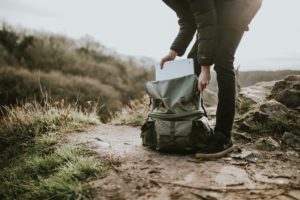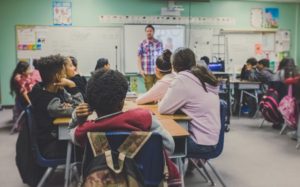A few weeks ago, I had the opportunity to conduct research with Year 11 students who are from rural/remote locations in NSW. Over two days, colleagues and myself worked with the students to create digital stories about how they ‘imagine’ or consider their life after school. We also invited the young people to participate in short interviews about their life and experiences ‘growing up rural’.
The project is also considering how university students who have come from rural/remote areas manage the various shifts that moving to university can engender. This part of the project requires university students to create short digital narratives and online reflections that explore the following questions:
- Arriving at university and being a student
- Moving between university and community
- Reflecting on the first year
As well as interviewing young people and developing visual representations of their future imaginaries, we also interviewed teachers (n=8) who work at High Schools located in these small and quite remote communities. To put this in context, the teachers described how their Year 11 cohort numbered as few as two through to a maximum of 30 students, not all of whom were considering completing the HSC. The communities where these schools are located are equally small, with populations that vary from just 100-200 up to 1,000 in number. These interviews were rich and insightful but for me, a key theme that emerged during conversations was the perception of the distinct delineation between the towns and what happens ‘out there’. As one teacher explained
‘…it’s [the town] like it’s in its own little bubble and it’s really hard to get them out of that bubble…’
Some of the teachers described how they explicitly tried to disrupt this distinction and distancing, by highlighting life and experience beyond the town perimeters:
‘…I always say there’s always more to just ‘here’… once you get over there, there’s a whole different world and I always encourage them…’
(Teacher 5)
‘I always say this, how do you know if this is what you want in life if this all you have experienced. Kids are like sometimes ‘oh, what’s that’’
(Teacher 4)
Often this directed teaching drew upon the teacher’s own experiences of life beyond the town and included getting the students to consider and imagine radical alternatives to what they assumed their future held for them.
For those rural/remote students who do make the decision to come to university, there is often an institutional focus on the geographical movement this entails. However, what these and other quotes indicate is that the social and cultural shifts required are equally immense. I think the work of Brenda Holt beautifully sums up the various changes, often invisible, that young rural people undertake when they decide to come to university. As Holt (2008, p.2) describes:
‘mobility is an ontological absolute for a rural young person—that is, in order to access it [university], one has to identify as ‘someone who will move.’
As this project moves into the analysis of the digital stories and interviews of the participants, undoubtedly further insights into the nature of these transformations will be revealed. For those of you interested in hearing more about the project and also, how the digital story methodology was utilised, we will be presenting on this at the upcoming STARS conference.
Hope to see you there – Sarah



